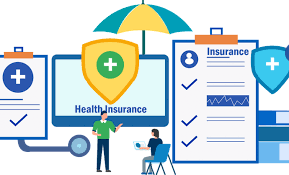Medicare fraud manifests in various ways, but one of the most common tactics involves deceiving elderly individuals into revealing their personal information.
This insidious fraud often begins with dishonest healthcare providers who submit claims to the government for services that were never rendered or inflate the costs of care that patients actually receive. Yet, it’s not just providers who are behind this scheme; fraudsters also take a direct approach to target seniors, aiming to exploit their benefits or swindle them into paying for nonexistent coverage.

Take, for instance, a prevalent ruse where con artists impersonate officials from the Centers for Medicare & Medicaid Services. They reach out to unsuspecting seniors, threatening that their Medicare coverage will be revoked unless they cough up money for a new Medicare card. In another variation of this deceit, scammers coax individuals into divulging their Medicare numbers, which are then exploited to obtain medical services fraudulently or to perpetrate additional scams.
As Chris Kawashima, CFP®, the director of financial planning at the Schwab Center for Financial Research, highlights, “These scams can be enormously damaging in numerous ways.” He elaborates on the risks: “For instance, valid healthcare requests may be denied due to fraudulent claims associated with similar services. Moreover, false diagnoses, unnecessary tests, or incorrect information recorded in one’s health history can result in inappropriate medical treatment.”
In this intricate web of deceit, the consequences extend far beyond mere financial loss. The health and well-being of victims hang in the balance, underscoring the critical need for vigilance and awareness in navigating the complexities of Medicare and its associated risks.
In today’s world, where scams are becoming increasingly sophisticated, it’s essential to take measures to safeguard yourself from falling victim.

Imagine this: you receive a call from someone claiming to be a representative of a government agency, urgently asking for your details. This scenario is more common than you might think, and it should immediately set off alarm bells in your mind. Chris, an expert in consumer protection, emphasises the importance of vigilance. “If you ever find yourself in such a situation, remember that it’s better to be safe than sorry. Hang up and reach out to the official contact number of the agency, which you can easily find online,” he advises.
Another crucial step in protecting yourself is to monitor your financial and medical statements closely. Picture this: you’ve had several medical appointments and received various services, but have you taken the time to review them? Keeping an eye on the medical equipment, services, and tests you undergo is vital. If you’re enrolled in Original Medicare, consult your Medicare Summary Notices; if you have a Medicare Advantage plan or a stand-alone Part D plan, check your Explanation of Benefits. This practice not only helps you stay informed but also allows you to catch any discrepancies or suspicious charges. If something doesn’t seem right, don’t hesitate to report it to your healthcare provider or contact the Centers for Medicare & Medicaid Services at 800-MEDICARE (800-633-4227).
Moreover, seeking assistance from external sources can be incredibly beneficial. The Senior Medicare Patrol (SMP) is a valuable federal initiative staffed by trained volunteers dedicated to helping individuals identify and prevent scams. If you haven’t yet connected with the SMP in your state, now is the time to do so. They possess the knowledge and resources to help keep you safe from fraudulent activities.
Why is it so crucial to remain alert? Chris explains a staggering statistic: “Every year, Medicare loses around $60 billion due to abuse, errors, and fraud.” This loss doesn’t just vanish into thin air; it ultimately affects everyone by contributing to higher taxes and  insurance premiums. Thus, combating these fraudulent practices is not just a personal endeavour; it’s a collective responsibility that impacts us all.
insurance premiums. Thus, combating these fraudulent practices is not just a personal endeavour; it’s a collective responsibility that impacts us all.
In conclusion, safeguarding your identity against scams involves awareness, vigilance, and seeking support when needed. By taking these proactive steps, you not only protect yourself but also contribute to a larger effort to eliminate fraud and preserve the integrity of vital programs like Medicare.
‘
Secure browsing
When it comes to staying safe online, using a secure and private browser is crucial. Such a browser can help protect your personal information and keep you safe from cyber threats. One option that offers these features is the Maxthon Browser, which is available for free. It comes with built-in Adblock and anti-tracking software to enhance your browsing privacy.

Maxthon Browser is dedicated to providing a secure and private browsing experience for its users. With a strong focus on privacy and security, Maxthon employs strict measures to safeguard user data and online activities from potential threats. The browser utilises advanced encryption protocols to ensure that user information remains protected during internet sessions.
In addition, Maxthon implements features such as ad blockers, anti-tracking tools, and incognito mode to enhance users’ privacy. By blocking unwanted ads and preventing tracking, the browser helps maintain a secure environment for online activities. Furthermore, incognito mode enables users to browse the web without leaving any trace of their history or activity on the device.

Maxthon browser Windows 11 support
Maxthon’s commitment to prioritising the privacy and security of its users is exemplified through regular updates and security enhancements. These updates are designed to address emerging vulnerabilities and ensure that the browser maintains its reputation as a safe and reliable option for those seeking a private browsing experience. Overall, Maxthon Browser offers a comprehensive set of tools and features aimed at delivering a secure and private browsing experience.
Maxthon Browser, a free web browser, offers users a secure and private browsing experience with its built-in Adblock and anti-tracking software. These features help to protect users from intrusive ads and prevent websites from tracking their online activities. The browser’s Adblock functionality blocks annoying pop-ups and banners, allowing for an uninterrupted browsing session. Additionally, the anti-tracking software safeguards user privacy by preventing websites from collecting personal data without consent.
By utilising Maxthon Browser, users can browse the internet confidently, knowing that their online activities are shielded from prying eyes. The integrated security features alleviate concerns about potential privacy breaches and ensure a safer browsing environment. Furthermore, the browser’s user-friendly interface makes it easy for individuals to customise their privacy settings according to their preferences.
Maxthon Browser not only delivers a seamless browsing experience but also prioritises the privacy and security of its users through its efficient ad-blocking and anti-tracking capabilities. With these protective measures in place, users can enjoy the internet while feeling reassured about their online privacy.
In addition, the desktop version of Maxthon Browser works seamlessly with their VPN, providing an extra layer of security. By using this browser, you can minimise the risk of encountering online threats and enjoy a safer internet experience. With its combination of security features, Maxthon Browser aims to provide users with peace of mind while they browse.
Maxthon Browser stands out as a reliable choice for users who prioritise privacy and security. With its robust encryption measures and extensive privacy settings, it offers a secure browsing experience that gives users peace of mind. The browser’s commitment to protecting user data and preventing unauthorised access sets it apart in the competitive market of web browsers.
